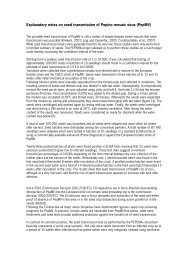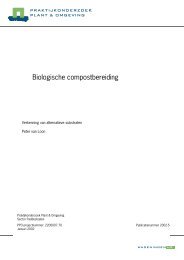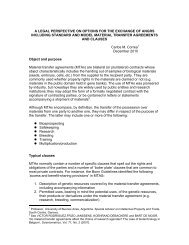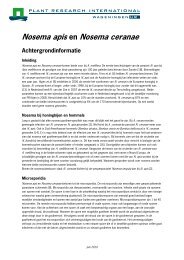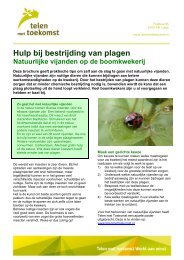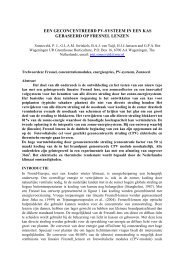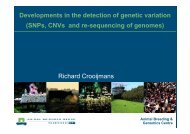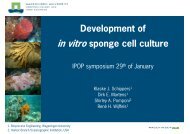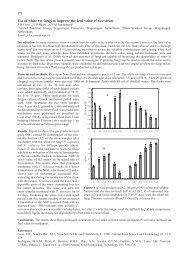Oil spill dispersant article
Oil spill dispersant article
Oil spill dispersant article
You also want an ePaper? Increase the reach of your titles
YUMPU automatically turns print PDFs into web optimized ePapers that Google loves.
oil are adsorbed both on the surface of the<br />
organisms and that the copepodes actively<br />
fi lters and ingests oil droplets from the water.<br />
It is important to distinguish between the<br />
increased potential for toxic effects to occur<br />
and the inevitability of toxic effects actually<br />
occurring. Dispersed oil concentrations will<br />
certainly be higher if <strong>dispersant</strong>s are used,<br />
than if they are not. This does not mean that<br />
the dispersed oil concentrations will be high<br />
enough, or persist for long enough, to cause<br />
actual toxic effects.<br />
Most <strong>spill</strong>ed oils will naturally disperse to<br />
some degree in the initial stages of an oil<br />
<strong>spill</strong>, before the oil becomes emulsifi ed. The<br />
successful use of <strong>dispersant</strong>s will obviously<br />
increase the concentration of dispersed oil<br />
in the sea. However, this is a matter of<br />
degree rather than an absolute difference;<br />
some <strong>spill</strong>ed oil is likely to naturally disperse<br />
even if <strong>dispersant</strong>s are not used (e.g. in the<br />
Braer and the North Cape incidents)<br />
The “fish versus bird” debate<br />
The argument that much lower toxicity and<br />
much more effective <strong>dispersant</strong>s produced<br />
after the Torrey Canyon, combined with<br />
restrictions in their use as regulated in the<br />
UK, would avoid potential problems with <strong>dispersant</strong><br />
use has not universally accepted. It<br />
became generally accepted that modern <strong>dispersant</strong>s<br />
are of low toxicity, but their use<br />
would enhance the toxicity of the <strong>spill</strong>ed oil.<br />
This became known as the “fi sh versus birds”<br />
debate and the main reasoning was:<br />
“Dispersing the oil will save the sea birds, but will<br />
poison the creatures in the sea.”<br />
Like many aspects of the <strong>dispersant</strong> debate,<br />
the basic premise is an over-simplifi cation of<br />
the facts. Although it is very likely that the use<br />
of <strong>dispersant</strong>s will offer a degree of protection<br />
to sea birds from oiling, it is not inevitable<br />
that signifi cant harm will be caused to marine<br />
creatures by <strong>dispersant</strong> use.<br />
The “fi sh versus birds”<br />
debate is divisive and sets<br />
members of communities<br />
that have been affected by<br />
oil <strong>spill</strong>s against each other.<br />
It is also too simplistic and<br />
wrong in several respects;<br />
oil <strong>spill</strong>s may affect marine<br />
life, whether or not <strong>dispersant</strong>s<br />
are used, and the risks<br />
to fi sh of using <strong>dispersant</strong>s<br />
are generally very small and<br />
can be further minimised by<br />
careful <strong>dispersant</strong> use.<br />
Two different grabbed epicluorescense images showing the physical effects<br />
of mechanically dispersed oil on the copepod Calanus fi nmarchicus., where<br />
images reveals that oil are adsorbed both on the surface of the organisms<br />
and that the copepodes actively fi lters and ingests oil droplets from the water<br />
(a seen through an oil-specifi c fi lter in the images to right)<br />
18



